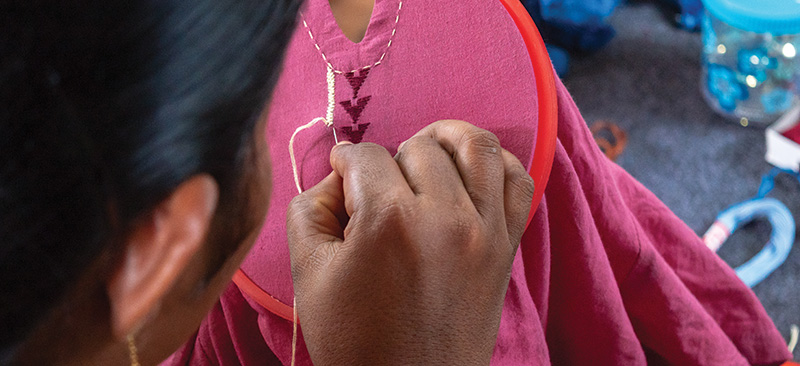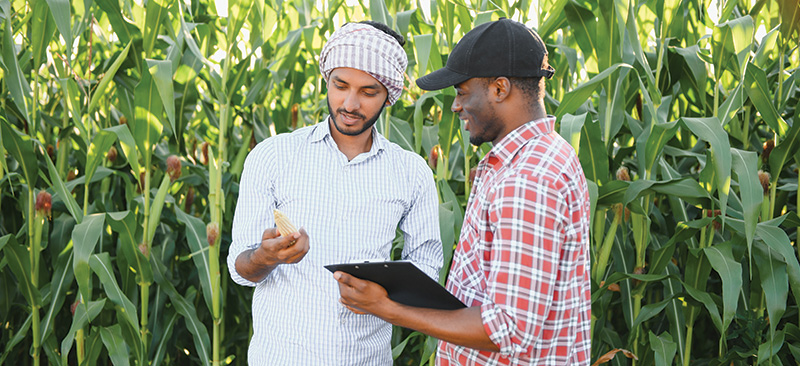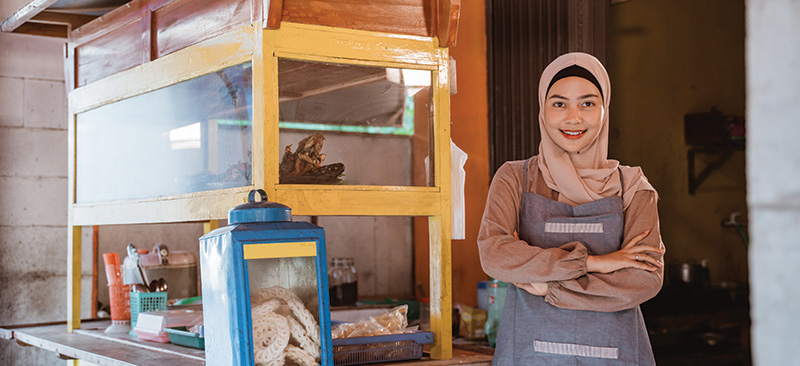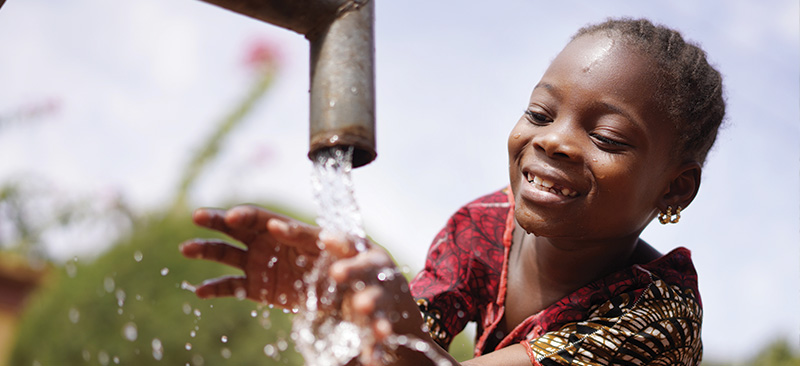
MSC collaborated with NITI Aayog’s Women Entrepreneurship Platform (WEP) to enhance support for women entrepreneurs. MSC mapped more than 750 government programs at the central and state levels in India with a focus on six critical entrepreneurial needs.
MSC identified successful practices by state governments to improve program accessibility and utilization. Additionally, MSC produced a comprehensive report on mentorship and financial access for women entrepreneurs, which covered demand and supply aspects based on national-level research.
WEP used our findings to develop evidence-based policies and strategies to promote women’s entrepreneurship in India. As a knowledge partner, MSC provides technical support to WEP for its mentorship platform and care economy initiative. MSC plans to work closely with WEP to enhance its existing programs and create new sector-specific initiatives to improve women entrepreneurs’ access to credit, including collaboration with potential partners, such as SIDBI.
The Bill & Melinda Gates Foundation commissioned this project.

The BMGF-FSP team intended to create reports that assessed the digital lending and recruitment landscape of mobile money and DFS agents in multiple countries across Sub-Saharan Africa, South Asia, and Southeast Asia. MSC was tasked with the following as part of this project:
- Describe the landscape of agent networks, FinTechs, banks, non-bank financial institutions, initiatives within mobile network operators, and other organizations that lend to agents.
- Describe the landscape of third-party service providers that support agents’ recruitment or management for mobile money providers and other financial service providers.
- Develop and publish market landscape and assessment reports on digital lending and mobile money and DFS agents’ recruitment in select markets from Sub-Saharan Africa, South Asia, and Southeast Asia.
The objective was to provide insights into the functionalities of DFS agent distribution networks. The project also intended to identify potential business models or innovations to address liquidity and credit constraints among agents. It also sought to enhance the understanding of the FinTech and digital finance community and contribute to financial inclusion. The project insights have contributed to further investments to help agents start and grow their current businesses and finance their adjacent businesses.
The Bill & Melinda Gates Foundation commissioned the project.

MSC and IFC (International Finance Corporation) conducted a global landscape analysis of digital credit, which included Kenya. The analysis intended to help Kenyan financial institutions enhance digital credit’s use through alternative credit scoring and improved data collection, management, and analytics capabilities. We started with a desk and primary research to understand the global digital credit ecosystem, its policies, regulations, and users. We also analyzed supply- and demand-side interactions.
The report included an in-depth description of the digital credit ecosystem, trends in digital technologies, data-driven credit scoring methodologies, and the impact of digital credit on financial inclusion. The report also identified emerging best practices, gaps, and opportunities for the use of data-driven credit scoring methodologies. It also provided recommendations on ways to enhance the digital credit ecosystem.
The Central Bank of Kenya has since developed Digital Credit Providers’ (DCP) guidelines and licensing for non-bank financial institutions.
The World Bank Group – IFC commissioned the project.

The Indian government launched the Pradhan Mantri Gram Sadak Yojana (PMGSY) in 2000 to improve rural connectivity across India. MSC was commissioned to design smart solutions that offered better ways to improve program delivery and capacity on the ground, particularly for the project’s physical and financial management. MSC supported the National Rural Infrastructure Development Agency (NRIDA) to implement a new range of emerging IT solutions.
MSC conducted a detailed diagnostic and designed a three-component intervention to implement a smart payments framework in the scheme:
- Smart payment engine (SPE): The proposed SPE would be a module that will run if-then-else algorithms in the backend. It would use available inputs in electronic form and any other payment conditions to automate entitlement calculation and payment disbursement.
- E-measurement book (eMB): The proposed eMB would be part of the modular architecture to enable data entry at source by contractor and rules-based processing. The eMB would aid in the inspection of compliances by the Program Implementation Unit’s engineering staff and align with the needs of the online management, monitoring, and accounting system (OMMAS). It could take data inputs directly in real time from the field.
- Single project registry (SPR): The proposed SPR would be a reference data repository based on the Single Source of Truth principle. It would have a data push and pull facility to enable access to real-time information to and from other applications.
The project would create transparency across the system to bring accountability to the program’s last-mile expenditure management. It would enable key decision-makers to better observe project site data, trace fund flow, and monitor the program in real time.
The National Rural Infrastructure Development Agency (NRIDA) commissioned the project.

MSC supported Bappenas, the Indonesian Ministry of National Development Planning, to strategize and implement the Government of Indonesia’s ambitious G2P 4.0 transformation program. G2P 4.0 seeks to improve the delivery of social protection programs (SPPs). MSC led policy-support activities with CGAP around the vision’s two main building blocks: i) Incentive determination for payment service providers; ii) Transformation of awareness, communication, and socialization practices in the new system.
MSC conducted evidence-based research to provide insights and recommendations and proposed a reformed process to determine incentives and delivery for payment service providers. The team also projected the fiscal impact and conducted a cost-benefit analysis of the proposed incentives on government finances. We uncovered insights, created recommendations, and proposed a reformed process for awareness and socialization activities in the SPP delivery.
Bappenas used the proposed reforms to consult other government agencies, which included the central bank, line ministries, service providers, and other international development partners. The support was exemplary as it laid out a framework for private sector participation in SPP delivery in Indonesia. Bappenas used the proposed recommendations to pilot-test the new reforms across seven regencies with 2,000 SPP beneficiaries. Bappenas planned to analyze the pilot results for the proposed reforms’ potential national-level rollout.
The Bill & Melinda Gates Foundation commissioned the project.

MSC conducted market research to understand the financial services needs for water, sanitation, and hygiene (WASH) among existing and potential Kenyan customers. We assessed WASH products’ demand among sanitation-based and water-based products’ clients and evaluated the feasibility of WASH loan products’ introduction for Kenya Women Microfinance Bank (KWFT).
MSC proposed new product concepts to enhance KWFT’s WASH finance portfolio, as part of the study. We also determined potential partnerships that KWFT should seek to deliver WASH finance to target customers.
The team shared the market research report and presented the product concepts to KWFT’s senior management team. KWFT’s senior management would deliberate on the marketing strategy and product concepts. The next steps would be to support KWFT to develop a pilot test plan for the updated WASH products.
Kenya Women Microfinance Bank commissioned this project.





